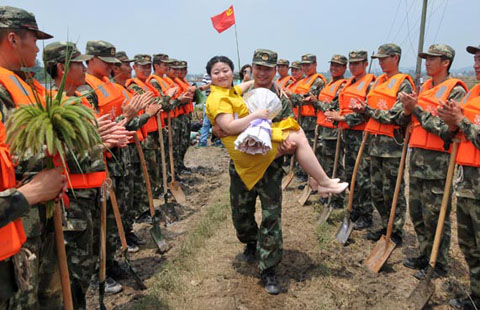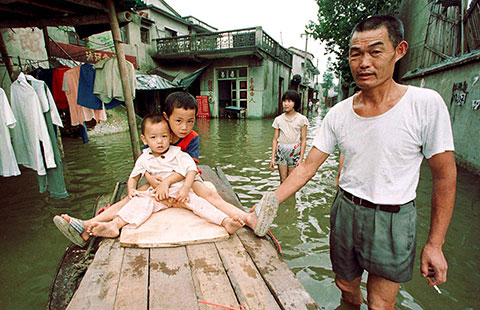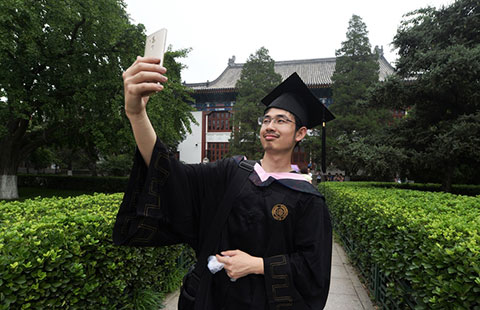National digital platform set up for volunteer services
By Chen Mengwei (China Daily) Updated: 2016-07-12 08:02China will establish a national system for volunteer organizations by 2020, under a set of guidelines issued by eight central government departments.
A digital platform across the nation will be set up to put legitimate volunteers and organizations on the record and keep track of their services.
Governments at all levels are encouraged to purchase services from volunteer groups in helping the poor, sick, elderly and orphans, as well as victims of natural disasters and other difficulties.
Officials and government employees are encouraged to take part in volunteer services during their spare time.
The Ministry of Civil Affairs, one of the eight departments endorsing the guidelines, has been appointed to take the administrative responsibility.

Tao Chuanjin, director of the Research Center of Philanthropy and Social Enterprise at Beijing Normal University, said the move has highlighted the service role of the government in the community of volunteers.
"The move's emphasis on the government's supportive job is progressive, as in China people see more of the government's supervising power," Tao said. "The guidelines also left space for future adjustments."
China had more than 100 million volunteers on record in 31 provinces, municipalities and autonomous regions by 2015, according to the China Volunteer Service Federation.
Voluntary service in China has more than three decades of history, dating back to the 1980s.
Dozens of related regulations have been established at the provincial level since 1999, when the first of its kind was set up in Guangdong province. But a national draft had not been formed until the approval of this one.
On May 20, President Xi Jinping presided over a high-level meeting of the Central Leading Group for Deepening Overall Reform, at which the draft of the plan was first approved, along with several other key proposals with national impact.
- More rain to create Yangtze flood control pressure
- China condemns S Sudan attack that killed 2 peacekeepers
- National digital platform set up for volunteer services
- Typhoon Nepartak leaves six dead, eight missing in east China
- Fifth lighthouse to shine on S China Sea
- Tiangong II laboratory to enter test phase after delivery
- Smaller rivers proving the bigger challenge
- Foreign experts marvel at rapid development of Tibet
- Identical natural quadruplets born in Shanghai: 1 in 13 million
- China's second space lab Tiangong-2 reaches launch center










